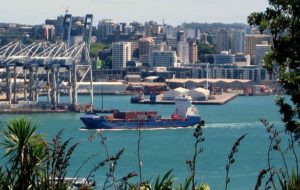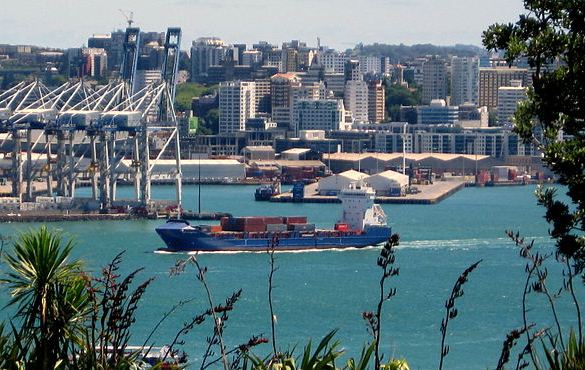 The International Maritime Organization (IMO) said it has made advances in its environmental agenda at the recent meeting of its Marine Environment Protection Committee (MEPC).
The International Maritime Organization (IMO) said it has made advances in its environmental agenda at the recent meeting of its Marine Environment Protection Committee (MEPC).
In essence, the committee clarified the ballast water management (BWM) schedule, moved forward with GHG and air pollution issues, adopted new NOx emission control areas, designated a further particularly sensitive sea area, and agreed to work on implementing the 0.50% global sulfur limit.
BMW schedule
The MEPC agreed on a practical and pragmatic implementation schedule for ships to comply with the IMO BWM Convention, which aims to stem the transfer of potentially invasive species in ships’ ballast water.
From the date of entry into force of the treaty on September 8, 2017, ships will be required to manage their ballast water. All ships will be required to have a BWM plan, keep a ballast water record book, and manage their ballast water to meet the so-called D-1 standard or D-2 standard.
The D-1 standard requires ships to conduct the exchange of at least 95% of their ballast water by volume, such that at least 95% of water by volume is exchanged far away from the coast where it would be released.
The D-2 standard requires ballast water management to restrict to a specified maximum the amount of viable organisms allowed to be discharged and to limit the discharge of specified indicator microbes harmful to human health.
Draft amendments to the treaty approved by the MEPC clarify when ships must comply with the requirement to meet the D-2 standard. They will be circulated after September 8, 2017, with a view to adoption at the next MEPC session in April 2018.
Under the approved amendments, new ships, i.e., ships constructed on or after September 8, 2017, shall conduct ballast water management that at least meets the D-2 standard from the date they are put into service. For existing ships, i.e., ships constructed before September 8, 2017, the date for compliance with the D-2 standard is linked with the renewal survey of the ship associated with the International Oil Pollution Prevention Certificate under the International Convention for the Prevention of Pollution from Ships (MARPOL) Annex I. For existing ships this would be the first or second five-year renewal survey after September 8, 2017.
The MEPC adopted a resolution which resolves that parties to the BWM Convention should implement the schedule for compliance outlined in the draft amendments ahead of their adoption and entry into force.
It also adopted and approved a number of guidelines and amendments to ensure proper implementation of the BMW treaty.
Global sulfur limit
Moreover, the MEPC agreed on the scope of work needed to consistently implement the 0.50% m/m global limit of the sulfur content of ships’ fuel oil, which will come into effect from January 1, 2020.
The Sub-Committee on Pollution Prevention and Response will explore actions to be taken to ensure implementation of the 0.50% m/m sulfur limit for fuel oil used by ships operating outside designated SOX Emission Control Areas and/or not making use of equivalent means such as exhaust gas cleaning systems.
The MEPC also adopted amendments to MARPOL Annex VI to designate the North Sea and the Baltic Sea as emission control areas (ECAs) for nitrogen oxides (NOX). Both ECAs will take effect on January 1, 2021, thereby considerably lowering emissions of NOx from international shipping in those areas.
GHG emissions
Also, IMO said work is on track for the adoption of an initial IMO strategy to reduce GHG emissions from ships in 2018. A working group will formulate a draft outline for the structure of the initial IMO strategy by October 2017 and finalize it and submit a report to MEPC 72 by April 2018.
Another issue addressed centered on the energy-efficiency design standards for new ships and associated operational energy-efficiency measures for existing ships, which became mandatory in 2013.
The committee was informed that nearly 2,500 new ocean-going ships have been certified as complying with the energy efficiency standards.
The MEPC also adopted or approved guidelines and amendments related to the implementation of the mandatory energy efficiency measures in MARPOL Annex VI.
Furthermore, the MEPC agreed to add a new output in its work program to develop measures to reduce risks of use and carriage of heavy fuel oil (HFO) as fuel by ships in Arctic waters. This new output will appear on the agenda for its next session in April 2018.
The use and carriage of heavy fuel oil is banned in Antarctic waters under MARPOL, and the IMO Polar Code recommends that states follow the same practice in the Arctic.
Tubbataha Reefs as a PSSA
At the same time, the MEPC approved the final designation of the Tubbataha Reefs Natural Park, situated in the Sulu Sea, Philippines as a Particularly Sensitive Sea Area (PSSA). This brings the number of marine areas protected in this way to 15 (plus two extensions).
The MEPC also approved the draft code for the transport and handling of hazardous and noxious liquid substances in bulk on offshore support vessels, for submission to the thirtieth IMO Assembly for adoption later this year.
Photo: Follash





